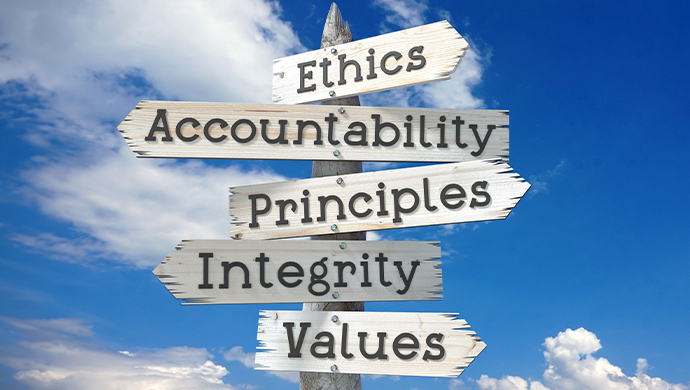
Ethical Leadership: Shaping a Sustainable Future for Business Development
The business world is evolving rapidly. Every business wants to leave an impeccable mark, but how can it make a lasting impact without sustainable development? As development picks up pace, the concerns about sustainable business also raise questions. Ethical leadership has become a foundation of sustainable progress in this rapid business world.
As businesses navigate complex challenges and aim for sustainable success, ethical leadership principles provide a strong foundation for sound decision-making, fostering stakeholder trust, and enhancing organizational adaptability. This blog highlights the importance of moral leadership in shaping a sustainable future for business development.
What is Ethical Leadership?
Ethical leadership isn’t limited to moral standards; it is more about building a sustainable future. It is important to comprehend the ethical role of ethics in assuring business success in the modern world.
Ethical leadership encourages and inspires others toward moral responses and decision-making.
Ethical leaders may influence and direct their businesses toward long-term leadership behavior that benefits the larger community and the environment.
The Significance of Ethical Leadership in Business Development
Good ethics are important in everyone’s lives. Like in life, ethics in business help foster sustainable growth.
Building Trust and Credibility: Ethical leadership promotes trust and credibility among workers, consumers, investors, and other stakeholders. When leaders continuously display integrity, honesty, and justice, they create an atmosphere in which trust may thrive. This trust is vital for developing solid connections and maintaining long-term commitment.
Enhancing Organizational Culture: Ethical leaders set the tone for the organization’s culture. Prioritizing ethical behavior encourages employees to embrace similar beliefs, resulting in a culture of integrity and responsibility. A strong ethical culture attracts top talent and inspires people to do their best.
Sustainability: Leaders whose attitude takes the ethical path are as likely to walk the two-edged iron balancing profits against accountability towards society and the environment.
Risk Management: Ethical behavior minimizes the risk of legal issues, regulations, or corruption. Leaders who uphold certain ethical values are less likely to engage in unethical acts that can hurt the organization. An admirable ethical reputation ensures your brand visibility and potentially sets you apart from its competition.
Fostering Innovation and Collaboration: Ethical leaders cultivate an inclusive workplace where ideas are appreciated. This encourages creativity and cooperation because employees feel comfortable sharing ideas and challenging the current quo. Ethical leadership fosters a culture of mutual respect and transparency, resulting in creative solutions and ongoing progress.
How Does Ethical Leadership Shape Sustainable Growth For Business?
Vision and Strategy: Ethical leaders prioritize long-term targets over short-term gains. Sustaining efforts are integrated into organizational vision and strategic planning, providing business activities through which companies benefit society and the environment. All this is extremely important for stable progress.
Shareholder Engagement: Ethical leaders regularly communicate with stakeholders to understand their needs and problems. Involving stakeholders in decision-making helps leaders build relationships. This ensures the organization’s activities reflect a broader range of interests. This approach fosters greater stakeholder satisfaction and support.
Corporate Social Responsibility (CSR): Ethical leadership is closely related to CSR projects. Ethical leaders committed to ethical conduct are aligned with CSR initiatives related to social, environmental, and economic issues. Such initiatives help communities while enhancing the organization’s brand and value to its stakeholders.
Supply Chain Management: Ethical leaders ensure managerial supply chain discipline adheres to high ethical standards. By promoting fair labor practices, environmental sustainability, and responsible sourcing, leaders contribute to the overall morality and sustainability of the supply chain.
Transparency and Responsibility: Ethical executives ensure the company’s supply chain processes ethical standards. Managers assist their organizations in maintaining the integrity and sustainability of the supply chain by advocating for fair labor practices, environmental sustainability, and responsible sourcing.
Having ethical leadership qualities benefits organizations a lot. Sustainable growth is not possible without ethical leadership. Ethical leaders know how to balance productivity with sustainability.
Ethical leaders develop resilient companies that can prosper over the long run by establishing trust, improving organizational culture, promoting innovation, reducing risks, and promoting sustainable decision-making. Adopting moral leadership practices guarantees that companies contribute to society while attaining long-term prosperity.
Markai Group of Companies believes that sustainable growth can be achieved with strong ethical leadership as the steps we take today shape the future of our companies.

